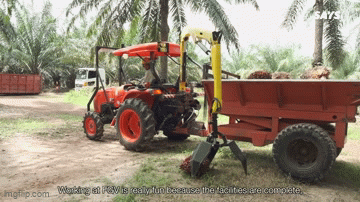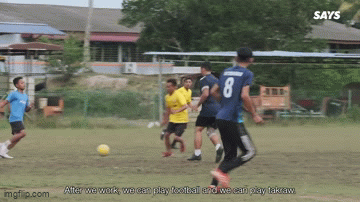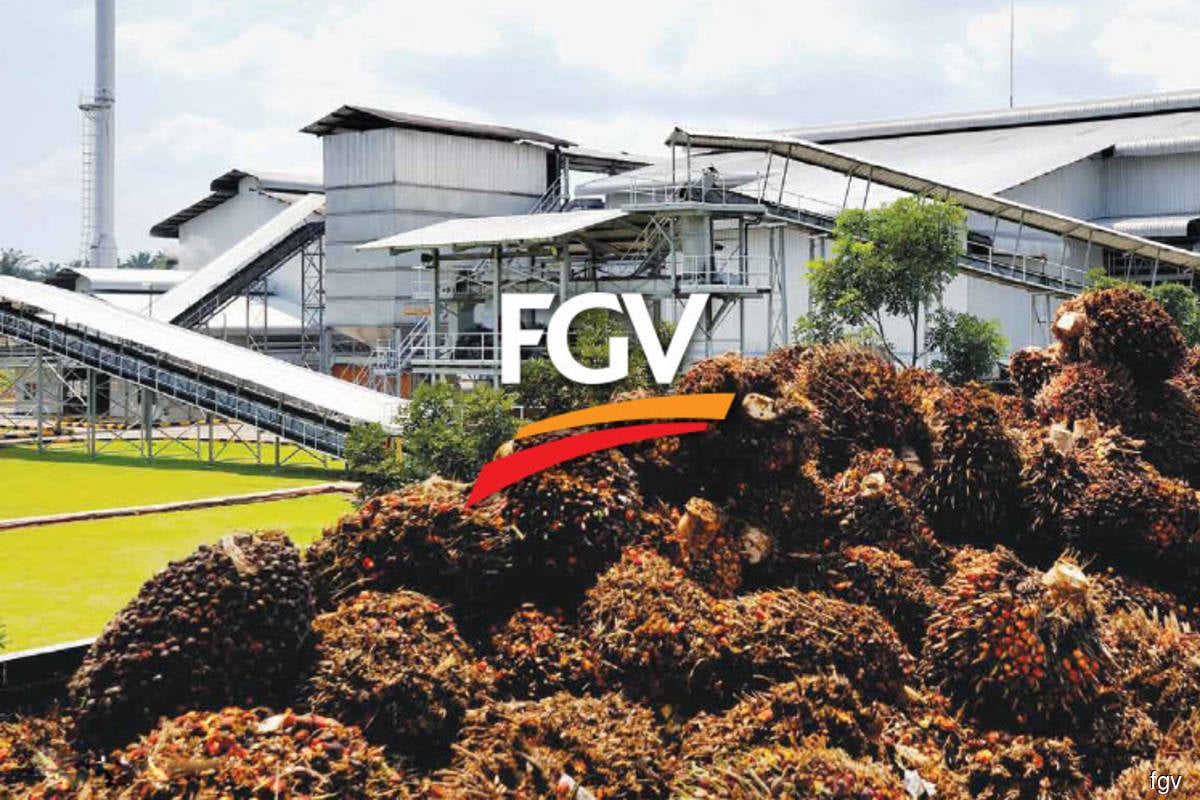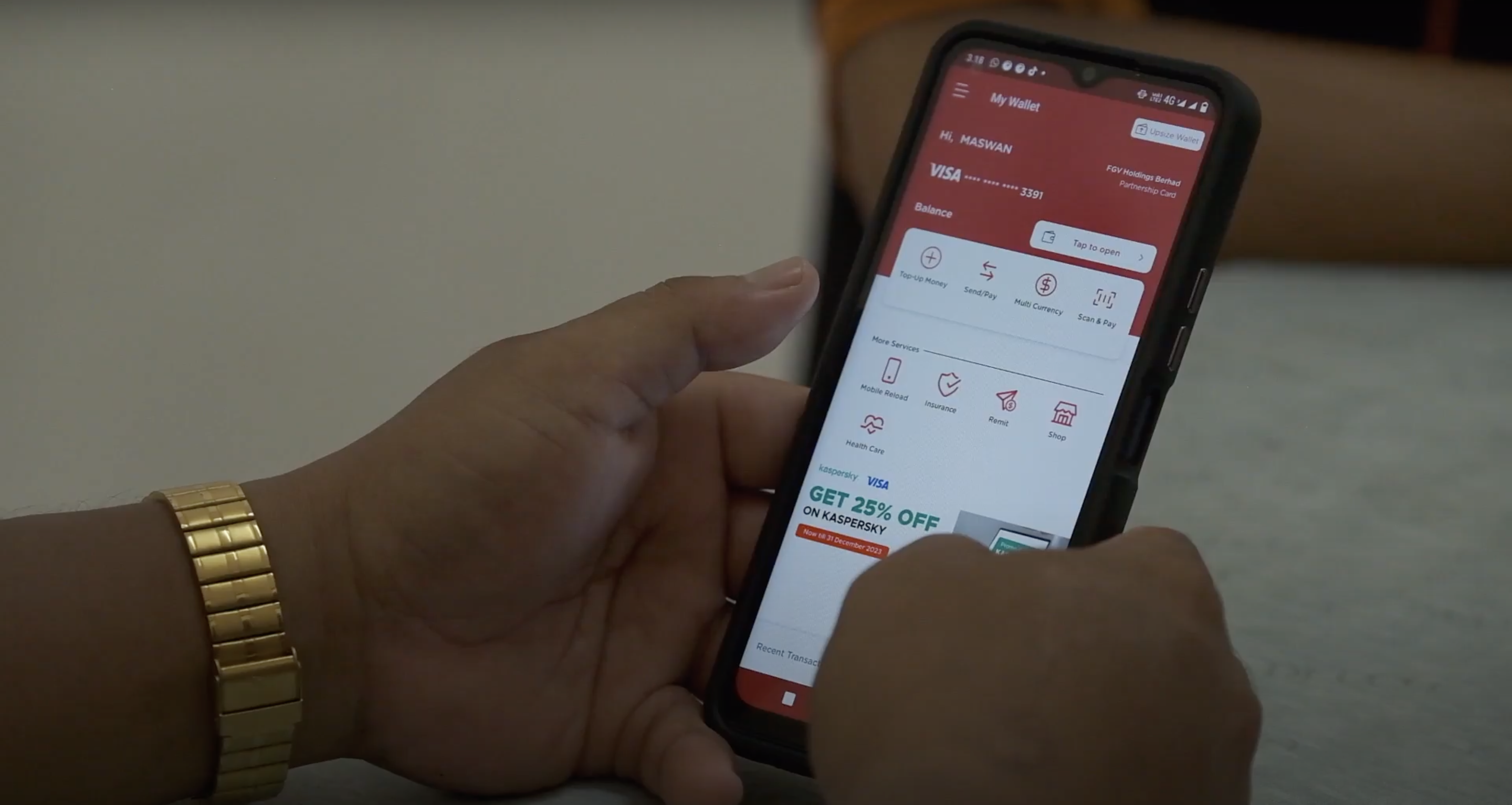[VIDEO] 41-Year-Old Migrant Worker Shares What It's Like To Work In An Oil Palm Plantation
Hailing from Indonesia, Maswan has been working in Malaysia for over 18 years.
Did you know that the palm oil industry plays a pivotal role in Malaysia's economy?
Malaysia is one of the world's largest producers and exporters of palm oil, making it a crucial component in growing our country's economy. It not only contributes to export earnings, but also provides countless employment opportunities to local and migrant workers.
However, working in the palm oil industry can be physically demanding and challenging. It often involves long hours of hard work under the sun, from planting to harvesting, and maintaining oil palm plantations.
In collaboration with FGV Holdings Berhad (FGV), we spoke to an FGV migrant worker named Maswan, who shared what it's like working in an oil palm plantation
Hailing from Indonesia, the 41-year-old man has been working in the palm oil industry for over 18 years.
He left his country to find better opportunities in order to provide for his family. Finally landing a job at FGV, Maswan found joy in being surrounded by many like-minded local and migrant workers. More importantly, FGV prioritises the welfare of their employees, providing Maswan and many other migrant workers with on-the-job training and well-provided lodgings.
In case you didn't know, FGV is one of the world's largest producers of crude palm oil, accounting for 15% of Malaysia's total annual production. With over 50 years of industry experience, plantations are part of the company's core business sectors, alongside a continuous commitment towards sustainability.
Watch the full video below to hear his story:
Even though the job is challenging, Maswan shared that he finds working at FGV fun and fulfilling
Maswan: "Working at FGV is really fun because the facilities are complete, so it's easier to work at the plantation. In addition to manual labour, work is assisted with a mini tractor and other heavy machinery."
Maswan has to work long hours under the sun, but he shared that he lets loose in the evening, playing sports with his colleagues and friends as a way to de-stress
Maswan: "After work, we can play football and takraw. There are many things around us. The facilities are very nice. The mosque facilities are very good. They are comfortable. They have air conditioners and fans. They help us to carry out our worship as Muslims."
One of the most challenging things about working overseas is being away from family for a long time. Thankfully, with WiFi connection and fixed working hours, Maswan can stay connected with his family easily.
Maswan: "When I go home, I video call my children and parents. That's what makes me more motivated to work."
All in all, companies like FGV are committed to ensuring their workers' rights and wellbeing are safeguarded
In fact, FGV has spent RM412 million over the years on the construction of new accommodation facilities, repair works on housing facilities, and equipment upgrades to ensure uninterrupted supply of electricity and water.
In respect of workers' rights, FGV also allows their workers to keep their own passports. They are free to choose between FGV's centralised lock box or their own storage lockers in all of the company's complexes.
Plus, the company introduced the FGV app to provide convenience to their workers
Technology is continuously transforming the way we do our work. And, FGV wants to ensure the latest technology advances can be enjoyed by their workers.
With the FGV app, workers can submit their grievances in their own language, and they can do this anonymously if they wish.
The app also contains other features, such as allowing workers to seek emergency assistance, access their payslips, and easily transfer money to their home country.




